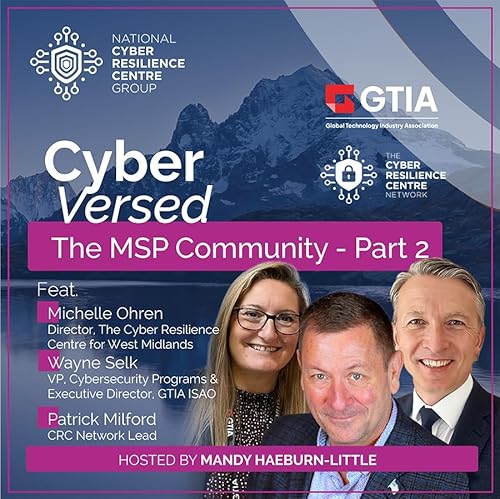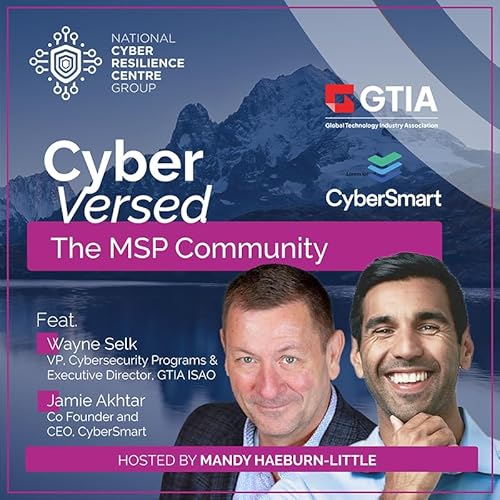In CyberVersed episode 45, we explore and explain the Cyber PATH programme. Mandy Haeburn-Little is joined by David Socha, Interim Head of Cyber PATH, Martin Wilson Head of Cyber & Innovation, North East Business Resilience Centre, and Sophie Powell, Talent Manager at Cyber PATH.
Martin kicks off the discussion with a summary of what Cyber PATH is and what it does: essentially, it helps micro, small, and medium-sized organisations (SMOs) understand how they might be attacked and how to avoid it, while providing real-world experience for students exploring careers in cyber.
Martin touches on the changes that have taken place since he started working on the programme, and their willingness and ability to adapt services to address the latest threats and trends.
David Socha explains why his experience in managing change and building teams perfectly suits his current role and why it is right for him to take an interim position to manage the structural changes underway to enable the programme to develop and grow. He also highlights that the primary focus of the changes is designed to create even better engagement with Academia, the CRC Network, students, and SMO businesses.
Martin explains the differences in the service since it began and how relationships among the various stakeholders have blossomed, enabling them to provide a better, more comprehensive range of services.
Asked about the most popular services, David points to Security Awareness Training, Microsoft 365 Service, and Internal Vulnerability Assessments as the three most prominent. Still, he notes that all services are helpful and popular with the SMO community.
Former Cyber PATH student and the 2023 Cyber Student of the Year, Sophie Powell, provides insight from a student perspective and explains how the programme helped her develop essential, valuable skills that she wouldn't necessarily have learned through her scheduled university coursework. Now, as the Talent Manager, she outlines her new role within Cyber PATH and her ambitions for the programme's future development.
Martin explains how service demand is changing and cites Microsoft 365 as an example of a popular emerging service, driven by the growing number of businesses using the tools as an integral part of their operations. He also highlights the power of clearly defined policies and the enormous benefits of having them adequately examined as part of the Policy Review service.
Martin also explains some of the hidden benefits of the programme, which he takes great pleasure in, namely how it helps develop the student's ability to communicate and articulate the findings to business owners or operators.
The podcast is a fascinating examination of the Cyber PATH programme, with three key personnel overseeing specific areas of delivery, yet all clearly sharing a passion for Cyber PATH and its success in developing students and supporting SMOs in building better cyber resilience.
 38 mins
38 mins Dec 21 202532 mins
Dec 21 202532 mins Dec 6 202539 mins
Dec 6 202539 mins 34 mins
34 mins Oct 28 202538 mins
Oct 28 202538 mins Sep 17 202519 mins
Sep 17 202519 mins Aug 20 202522 mins
Aug 20 202522 mins 19 mins
19 mins
